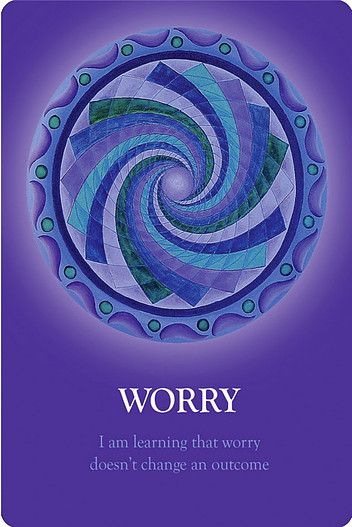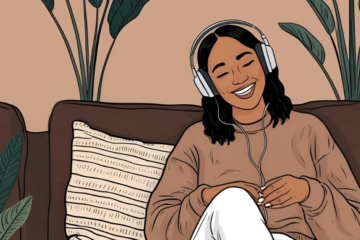How to Get to Sleep Easily: 5 Practical Tips to Nail It
How to get to sleep easily greatly involves ritualizing it. You will have to prepare for it just as how you start the day, and you will get to sleep as easily as you overthink things. While getting to sleep easily requires body awareness, a socio-psychological and sometimes pharmacological approach, here are 5 practical tips that you can try before you spend a dime. These are lifestyle adjustments (if you don’t like to call it ‘behavior shift’). And these may help, especially if financial constraints interfere with the motivation to seek treatment.

1. Conscious preparation
You would have to want it. This is the most important aspect of how to get to sleep easily. You begin by being ready to wind down for sleep by let’s say, 9 pm, or 1-2 hrs before your intended sleep time. And you have to be consistent.
One of the lifestyle aspects of sleep hygiene is mindfully creating your bedroom environment. Generally, you have to avoid any kind of strong stimuli that will get your brain and senses working. Prepare yourself to relax. If you have been doing your work by the bedside, then you have been training your mind to associate being active with your bed. Transfer to another place, like the living room, because this is a tiny detail of sleep-work that we deny changing.
If you hate making time or room adjustments, at least equip yourself with an amber lamp. Check product specifications, and choose 1000K-3000K color temperature bedside lighting. That means, turn off the white light, and choose a warm one. If you wish to read a book to wind down, get an amber book lamp that blocks out blue light. Definitely, lights off or a faint light will definitely help you get down to sleeping business easily.
This is part of the sleep ritual, and as you do it consistently, it helps you build that habit.
2. Yoga Nidra
Once you have set up your environment, it’s time to bring in more sleeping aids to boost your motivation.
Yoga Nidra or yogic sleep is meditation while being awake. The instructor will prompt you as you help your body relax. Sometimes this includes breathwork (see tip 4), or tightening your muscles to the best of your ability and fully releasing them. A 20-minute Yoga Nidra practice may be enough to tune out of your conscious mind, such as this:
3. Just lie down
I was supposed to name this as do nothing, but it sounds counter-intuitive, and even welcomes in more thoughts from you. Because for the life of you, you just can’t get non-preoccupied, hence insomnia.
Some Yoga Nidra routines will prompt you to manage your breathwork so you can get to sleep easily. If you do not have access to a Yoga Nidra routine online, then you can just plainly lie down.
The trick here is the energy of surrender. Yoga Nidra routines will tell you to lie in a corpse pose–flat on your back with your hands by your side.
And then you will use your mind. Instead of thinking of to-do’s, you will redirect your thoughts to your body.
In your mind, imagine your thumb lifting as you inhale, and then imagine putting it down as you exhale. Do it to all of your 10 fingers and toes. I describe this as a more adult (if not mature) way of counting sheep. Relax the muscles between your eyebrows, unclench your jaw and fist, soften your shoulders, and tune in with your breath.

If you still can’t refocus your attention on your body or wouldn’t want to do this, you would have to replace it with sleep-conducive thoughts, such as what Taylor, et al. mentioned in Handbook of Insomnia (p. 43):
“I may feel a little more tired following a bad night’s sleep, but that’s normal for everyone, including cancer survivors. After a poor night’s sleep, I can make sure I engage in other health behaviors the following day. Also, I can learn new strategies to help improve my sleep and allow me to cope with fluctuations in my sleep.”
Taylor, D., Gehrman, P., D Dautovich, N., L Lichstein, K., & S McCrae, C. (2014). Handbook of Insomnia. Springer Healthcare Ltd.
Dysfunctional beliefs are part of the socio-psychological aspect of working with insomnia, and you might need a therapist because cognitive-behavioral therapy has a significant effect on worry. However, if that seems like a tall order, then hop on to the remaining tips.
4. Breathwork
As you lay down, count your breaths, and make your exhales longer than your inhales. Imagine all thoughts leaving your mind, and the weariness be expelled out of your system. Imagine it as a dark fog getting out of your body. Repeat until you feel your body relaxed, or until you feel that you are no longer doubting this process.
5. Try a sleep aid
No, it’s not melatonin or CBD oil. Personally, melatonin gives me a deep sleep, but it doesn’t make me feel sleepy. So I skipped that a long time ago, and tried these wholesome (and cheap) approaches to get to sleep easily.
Use lavender essential oil, or create your own cheapass elixir for an aromatherapeutic vibe.
If you can’t get rid of your phone during bedtime, use it to your advantage. Listen to a bedtime story just like the plain old times, through any of the free meditation apps available online (find the right one for you in this brief article). Sometimes a soothing voice can do the trick.
You can also build an aquarium at home (if it’s something you’ve been wanting to do) or just watch those youtube videos, such as the one below. The trick to how to get to sleep easily is always about getting your body to relax. Once no muscle in your body is tensed, everything will fall into the right place.
Final Thoughts
Sleep has become a luxury that we have neglected to gift ourselves with. One’s willingness is a key to how to get to sleep easily. You really don’t have to force yourself to sleep, so this article is all about getting your environment to work for you, especially if you are looking for an alternative to sleeping pills. Pharmacological intervention highlights a treatment gap too, Taylor et al. conclude.
Beliefs form a great part in easing into sleep. But if you’re reluctant to even think how to think to get your way to sleep, then just tell yourself affirmations such as “practice makes progress,” or “I will get better at this”. Help yourself to relax–it is significantly beneficial in more ways than one.
Allow me to leave you with this Soul’s Journey lesson card to affirm your journey towards better sleep.
Free Tarot Reading – Create Your Own!
Read More Spiritual Hacks
- I Want to Die But I Want to Eat Tteokbokki: A Short Review
 I’ve also encountered literature that felt far more devastating, and I’m already familiar with unfiltered, real-life conversations around dysthymia and suicide. Why hold back? I’m not saying the book needed graphic detail to be effective—but Read more
I’ve also encountered literature that felt far more devastating, and I’m already familiar with unfiltered, real-life conversations around dysthymia and suicide. Why hold back? I’m not saying the book needed graphic detail to be effective—but Read more - Top Crystals to Attract Love and Romance
 If you’re looking to attract love into your life—whether it’s self-love, romance, or deep emotional healing—crystals are powerful allies. These beautiful gemstones vibrate with energies that can open your heart, clear emotional blocks, and invite Read more
If you’re looking to attract love into your life—whether it’s self-love, romance, or deep emotional healing—crystals are powerful allies. These beautiful gemstones vibrate with energies that can open your heart, clear emotional blocks, and invite Read more - 5 Crystals for Mental Health During Libra Season (And How to Know If It’s Fake)
 Libra season, ruled by Venus, encourages balance, harmony, and a sense of peace in all aspects of life—especially when it comes to mental health. From September 23 to October 22, we are guided to find Read more
Libra season, ruled by Venus, encourages balance, harmony, and a sense of peace in all aspects of life—especially when it comes to mental health. From September 23 to October 22, we are guided to find Read more - Soul Gifts, Soulmates, and Signs of Being an Old Soul: Takeaways from Letters to a Starseed
 Rebecca Campbell’s Starseed oracle deck is a good addition to one’s arsenal because it offers an uncommon perspective on soul-work. It also offers a deeper understanding of one’s own consciousness evolution. However, words from Letters Read more
Rebecca Campbell’s Starseed oracle deck is a good addition to one’s arsenal because it offers an uncommon perspective on soul-work. It also offers a deeper understanding of one’s own consciousness evolution. However, words from Letters Read more - Unlock Your Inner Power Through Stones
 The seat of your inner power is in your core, where the energy center called the solar plexus chakra rests. You connect with this chakra alongside your intuition (third eye chakra) to make the right decisions and Read more
The seat of your inner power is in your core, where the energy center called the solar plexus chakra rests. You connect with this chakra alongside your intuition (third eye chakra) to make the right decisions and Read more - Yoga Tips for Beginners at Home: 9 Things You Need to Know
 So you’ve decided to try yoga. New to it? No problem. Here are tips for yoga beginners at home that you should know before you hop on to your mat. And no, your mat need Read more
So you’ve decided to try yoga. New to it? No problem. Here are tips for yoga beginners at home that you should know before you hop on to your mat. And no, your mat need Read more








0 Comments